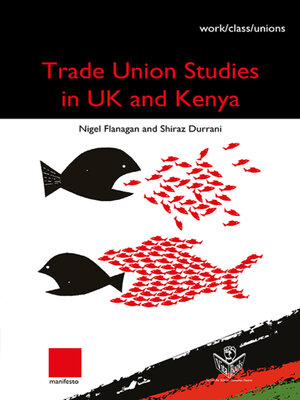
Sign up to save your library
With an OverDrive account, you can save your favorite libraries for at-a-glance information about availability. Find out more about OverDrive accounts.
Find this title in Libby, the library reading app by OverDrive.



Search for a digital library with this title
Title found at these libraries:
| Library Name | Distance |
|---|---|
| Loading... |
Nigel Flanagan brings a distinct perspective to the problems of trade union organising. In this account he draws on his own experiences as an activist, shop steward, strike organiser and working for the global union UNI. The book has be very well received and after six impressions this revised and enlarged edition is also being published in a Kenyan version with our partners, Vita Books - Nick Wright. Nigel Flanagan's Our Trade Unions: What Comes Next? was first published in Britain in early 2023 at the height of the country's inflationary crisis, when basic food costs were increasing by up to 20 per cent and energy by far more. Workers were fighting, through their trade unions, to protect their living standards and local services from the biggest attack for a century. This new Kenyan edition of Flanagan's book is, therefore, doubly welcome because it provides real life substance to these links. The chapters from Shiraz Durrani, himself a veteran of these struggles, reveal how far the movements of resistance to colonial rule were rooted in, and largely sprang from, the trade union movement in the 1920s and 30s. The importance of the contribution from Shiraz Durrani is that he places this resistance squarely in the special circumstances required for capitalist exploitation to take place in Kenya... Resistance demands mass-based political trade unions. This is why Kenya's experience and that of other African nations is of relevance not just to workers in Africa but those who wish to rebuild the workers' movement internationally. But this process must be political. It cannot be simply that of 'organising'. As Shiraz Durrani stresses, 'without a vision of achieving equality and justice, unions remain merely to make capitalism more acceptable to workers'- John Foster







